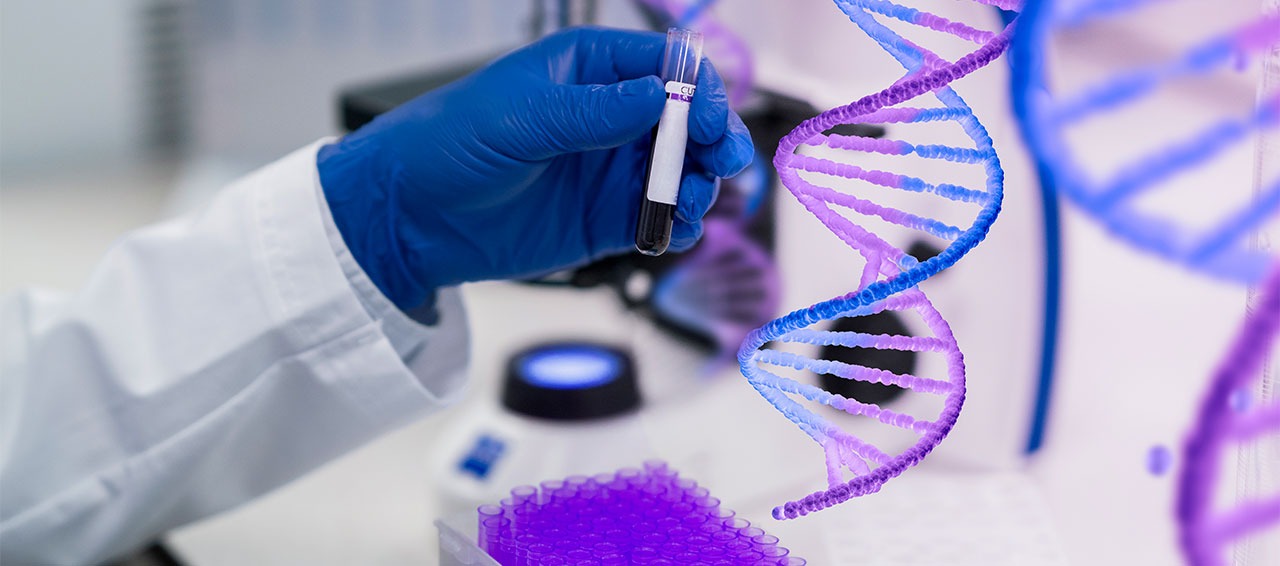Utilizing genomics, breeders can pinpoint animals within their herd that exhibit the highest genetic potential. Through testing, valuable traits like longevity and fertility can be identified and enhanced. The outcomes of genomic tests provide a reliable basis for making more informed breeding choices, aligning with specific breeding objectives.
Genetic testing has revolutionised the livestock industry, becoming a worldwide core component of breeding programs. Through genotyping, breeders can access crucial information about an animal’s genetic makeup, enabling informed decisions and driving productivity, health, and sustainability improvements.
In this blog, we will explore the emergence of genotyping, its broad applications in livestock management, and the benefits it offers to breeders and the industry. Let’s dive in!
History of the genotype
Genotyping is the process of analysing an individual’s genetic information to understand their unique genotype. The history of genotyping can be traced back to the discovery of DNA’s double helix structure by James Watson and Francis Crick in 1953. This breakthrough paved the way for further advancements in genetics research. In the 1970s, the development of DNA sequencing techniques allowed scientists to read and decode the genetic information stored within the genome.
As genotyping methods became more refined and cost-effective, they began to be applied in various fields, including medicine, agriculture, and forensic science. Today, genotyping plays a crucial role in unlocking the mysteries of our genetic makeup, improving healthcare diagnostics, enhancing crop yield and quality, enabling the identification and study of genetic disorders, and revolutionising breeding programs in the livestock industry.
Applications in the livestock industry
In the livestock industry, the adoption of genotyping paralleled advancements in genomic science. Aided by high-throughput sequencing technology and bioinformatics tools, breeders can now rapidly scan an animal’s entire genome. This genomic testing reveals detailed information about productivity traits, disease resistance, and overall genetic health, thus enabling efficient and informed breeding decision.
Benefits of livestock genomic testing
Improved breeding and bloodstock decision making
Genotyping enables breeders to select livestock with desirable traits, such as increased meat quality or higher milk yields. By honing in on these profitable genetic variations, breeders are able to make more informed breeding and bloodstock decisions, helping to drive profitability while also preserving livestock health.
Increased productivity and efficiency
Through the collection and use of genomic information, breeders can enhance the efficiency of their resource allocation by focusing their attention on animals with superior genetic potential, resulting in increased livestock productivity. For example, genomic testing may reveal that some of your animals require less feed than others to provide the same meat or milk yields. Identifying and cultivating these animals could then reduce the amount of feed you need to purchase going forward. This targeted approach can lead to long-term cost savings.
Disease resistance and improved health
Genomic testing provides valuable data on genetic resistance to diseases, allowing breeders to make informed breeding decisions. This helps in promoting healthier livestock and reduces the risk of disease outbreaks or the passing on of genetic disorders. Furthermore, genotyping data can be used to manage genetic diversity, which contributes to improved overall health and adaptability of livestock populations.
Improving the quality and health of your livestock with genotyping
Genotyping has come a long way since the discovery of the DNA’s structure in 1953, culminating in the present day, where it serves as an instrumental tool in enhancing the quality and health of livestock. Today, genomic testing allows for detailed insights into productivity traits, disease resistance, and overall genetic health, forming the basis for informed breeding decisions and improving overall livestock well being. By focusing on animals with superior genetic potential and those with genetic resistance to diseases, breeders can now leverage genomic testing to improve productivity and promote healthier livestock.
With our range of livestock genomic testing services, XytoVet are equipped to help your livestock achieve their full potential. Contact us today to learn more about how genotyping can revolutionise your breeding program!











